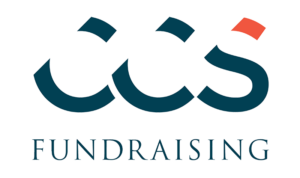A focused feasibility and planning study is an essential early step in campaign planning for higher education institutions. Rather than providing a simple “yes or no” answer about whether or not to move forward with a campaign, a truly valuable study serves several purposes: it provides early feedback on the case for support and campaign goal, identifies potential volunteer leaders and financial prospects, and serves as early cultivation of an organization’s top stakeholders. For colleges and universities, which tend to have broad campaign priorities and many prospect constituencies, a strong planning study is a first step in bringing your community together to support what will be a transformational initiative. However, without thoroughly planning the study, there is the potential to waste time and resources, and miss opportunities to strengthen your campaign in the long run.
Start with a Strategic Plan
While the study provides an opportunity to test a very early version of case elements and uncover the areas your donors find most attractive, the strongest case for support will align with your institution’s strategic plan, even at this early stage.
The strategic plan – typically designed over time by a group of stakeholders including administrative leaders, board members, key faculty and staff, alumni, parents, and sometimes even students – outlines the institutional priorities of the school. The campaign is the vehicle that will fund that plan and make those priorities a reality.
Knowing that your case is built on a strategic plan gives your study participants the confidence that the initial step of determining priorities has already been accomplished and that the school’s leaders are behind it. It also helps ensure that no matter how much your college or university is transformed by the campaign, it will still adhere to its mission and goals.
Think Outside the Box
A planning study will include personal discussions, or interviews, with key stakeholders. While you want to include many opinions, and meet with your most valuable stakeholders, the goal should not be to interview as many people as possible. Instead, prioritize finding the right people. Focus on who is best-suited to discuss the school’s strengths and challenges and who will have important insights into the school’s ability to embark on such a major initiative.
While your discussion subjects should include board members, top donor prospects, and close friends of the institution, there is opportunity to think more creatively as well. Consider including up-and-coming potential board members, active alumni, or others who know your school well even if they aren’t (yet) significant donors. Also make sure to meet with anyone whose financial participation could greatly sway the campaign goal amount or initiatives.
Additionally, don’t be afraid to include people who have expressed frustrations in the past. Often, providing the opportunity for a one-on-one discussion is a valuable way to allow that person to vent his or her frustrations and provide honest feedback. Rather than closing the door on these prospects, this enables school leaders and the development team to keep the conversation going.
Remember: This is Cultivation
Don’t think of the planning study as a precursor to campaign planning, but rather as an important component of campaign planning. The cultivation aspect sometimes gets lost, but it is a critical piece of setting the school up for success. There are a few things you can do to help turn a study interview into a cultivation opportunity.
For starters, be sure to find out from those conducting the study if the participant has any immediate concerns or complaints that need to be addressed. If so, forward them on to the appropriate person. If the participant has questions that can be answered now, such as requesting more information about a current program, be timely in your follow up.
Finally, don’t forget to say thank you! Although most of the study discussion content will likely be kept private, a member of the school’s development or administrative team should follow up to thank each participant as soon as their discussion is complete. Thank them again once the study is over and be sure to keep them informed of any major decisions along the way.
Preparation is Key
A feasibility and planning study is the first step to setting your college or university on the path to a campaign. Go into the study with your homework done. Identify your main priorities and goals, keep an open mind to engaging participants, and have a cultivation mindset throughout. The advice you receive from the study may contain surprises and your case may shift based on the study results, but thoughtful preparation will ensure a solid start to your campaign.
CCS Fundraising is a strategic consulting firm that partners with nonprofits for transformational change. To access our full suite of perspectives, publications, and reports, visit our insights page.
